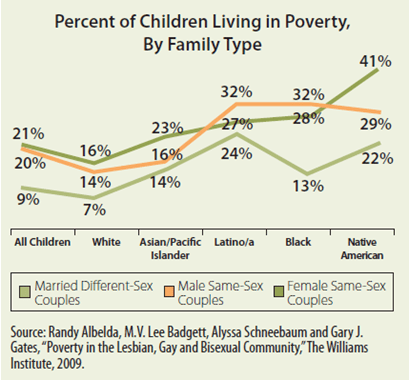Note: This post originally appeared on AEA365, the American Evaluation Association's blog.
I am Efrain Gutierrez and I work for FSG, a nonprofit consulting firm that helps foundations, nonprofits and corporations increase their social impact. Last year a friend started collaborating as an evaluator for a program that works with LGBTQ youth. Before starting his evaluation he wanted to talk about cultural competency when working with the LGBTQ community. As I prepared for the meeting, I reflected on the lessons that I think would be most useful for evaluators working with this community:
-
A person’s sexuality is not the only thing affecting their life. The LGBTQ community replicates the patterns of sexism, racism, and classism prevalent in our society. Problems affecting women and other underrepresented groups are also affecting members of the community. Being queer creates a “multiplier effect,” making it even more challenging for queers to overcome social barriers, stay healthy, get an education, make a decent wage, etc. A clear example of this “multiplier effect” is in the study All Children Matter: How Legal and Social Inequalities Hurt LGBT Families. The document shows how children across races are more likely to live in poverty if they live with a same sex couple compared to those living in different sex couples (see graph from the report below). As evaluators it is important to account for this “multiplier effect” and be open and prepared to discuss race, sexism, class, and other social issues when engaging with LGBTQ folks.
-
Account for a diversity of voices in your evaluation; tapping only into the most visible LGBTQ members might not give you the diversity needed. Since the LGBTQ movement often reproduces patterns of racial and gender separation prevalent in our society, most intellectual and political circles in the community remain predominantly cis-gender, male, and white. As you determine who to include in your evaluation look for a representative set of members of the LGBTQ community to provide a full picture of the issues affecting the recipients of the programs you are evaluating.
-
Don’t take for granted that you understand the political context for LGBTQ rights just by reading the headlines. Marriage equality is important, but there is a wide range of challenges affecting the community popular narrative is not focusing on: discrimination against transsexuals, violence against queers living in rural areas, and inadequate access to resources for queers with special needs, to name just a few of the issues evaluators should consider as they work with the LGBTQ community.
Rad Resources:
-
A Fragile Union – article on gay politics
-
Allan Bérubé’s work

